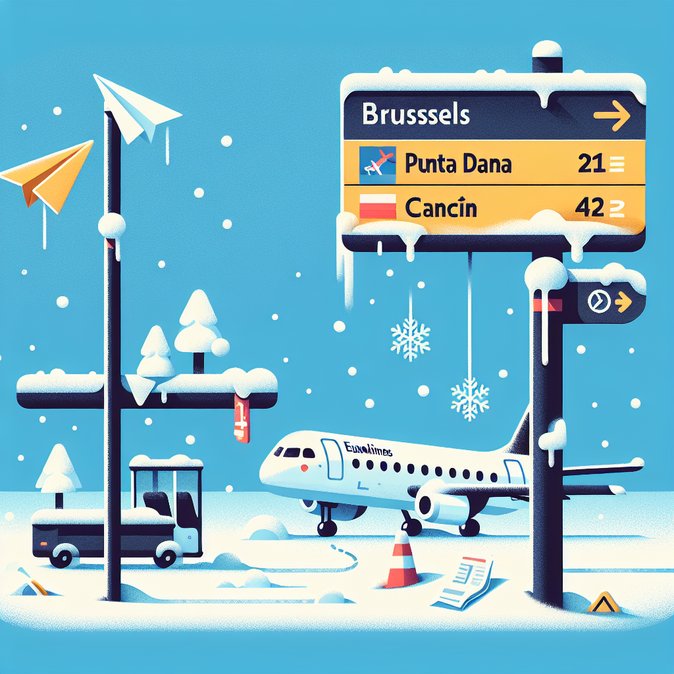
Spanish carrier Euroairlines has cancelled its planned winter 2025/26 services from Brussels Airport to Punta Cana (PUJ) and Cancún (CUN) after a leasing deal for a Boeing 787-8 fell through, industry portal Aviation24 reported on 28 October. The airline will maintain its Paris CDG–Punta Cana operation but will leave Brussels without any nonstop links to the Caribbean this winter—a double blow following TUI fly Belgium’s earlier withdrawal of its own Dreamliner from Caribbean rotations.
Euroairlines had already trimmed the schedule to a December–January peak-season window because of weak forward bookings. The final pull-out was prompted when lessor TUI selected an alternative partner able to operate six weekly rotations, versus Euroairlines’ proposed three. Without wide-body capacity, the carrier says it cannot meet reliability and EU261 compensation obligations.
For Belgian leisure and MICE travel managers, the loss narrows long-haul options at Brussels Zaventem just as demand rebounds to 92 % of pre-pandemic levels. Tour operators must re-route groups via Paris, Amsterdam or Madrid, adding at least one connection and up to four hours’ journey time. Corporate buyers holding bulk fares or seat blocks should renegotiate with Air France-KLM or Iberia to avoid winter surcharges that airlines typically impose once nonstop competition disappears.
The development also raises strategic questions for Brussels Airport, which has struggled to retain long-haul carriers amid fleet shortages and labour unrest. Airport management is expected to step up incentives under its ‘Network Development Fund’, offering landing-fee rebates for new intercontinental routes—a potential opportunity for Air Belgium or Wamos Air to enter the leisure market. Travel risk experts note that cancellations trigger EU261 compensation only for tickets issued directly by Euroairlines; passengers booked through tour operators should verify refund liability.
Euroairlines said relations with TUI remain “positive and cordial” and that it will revisit Brussels services once suitable aircraft become available.
Euroairlines had already trimmed the schedule to a December–January peak-season window because of weak forward bookings. The final pull-out was prompted when lessor TUI selected an alternative partner able to operate six weekly rotations, versus Euroairlines’ proposed three. Without wide-body capacity, the carrier says it cannot meet reliability and EU261 compensation obligations.
For Belgian leisure and MICE travel managers, the loss narrows long-haul options at Brussels Zaventem just as demand rebounds to 92 % of pre-pandemic levels. Tour operators must re-route groups via Paris, Amsterdam or Madrid, adding at least one connection and up to four hours’ journey time. Corporate buyers holding bulk fares or seat blocks should renegotiate with Air France-KLM or Iberia to avoid winter surcharges that airlines typically impose once nonstop competition disappears.
The development also raises strategic questions for Brussels Airport, which has struggled to retain long-haul carriers amid fleet shortages and labour unrest. Airport management is expected to step up incentives under its ‘Network Development Fund’, offering landing-fee rebates for new intercontinental routes—a potential opportunity for Air Belgium or Wamos Air to enter the leisure market. Travel risk experts note that cancellations trigger EU261 compensation only for tickets issued directly by Euroairlines; passengers booked through tour operators should verify refund liability.
Euroairlines said relations with TUI remain “positive and cordial” and that it will revisit Brussels services once suitable aircraft become available.





